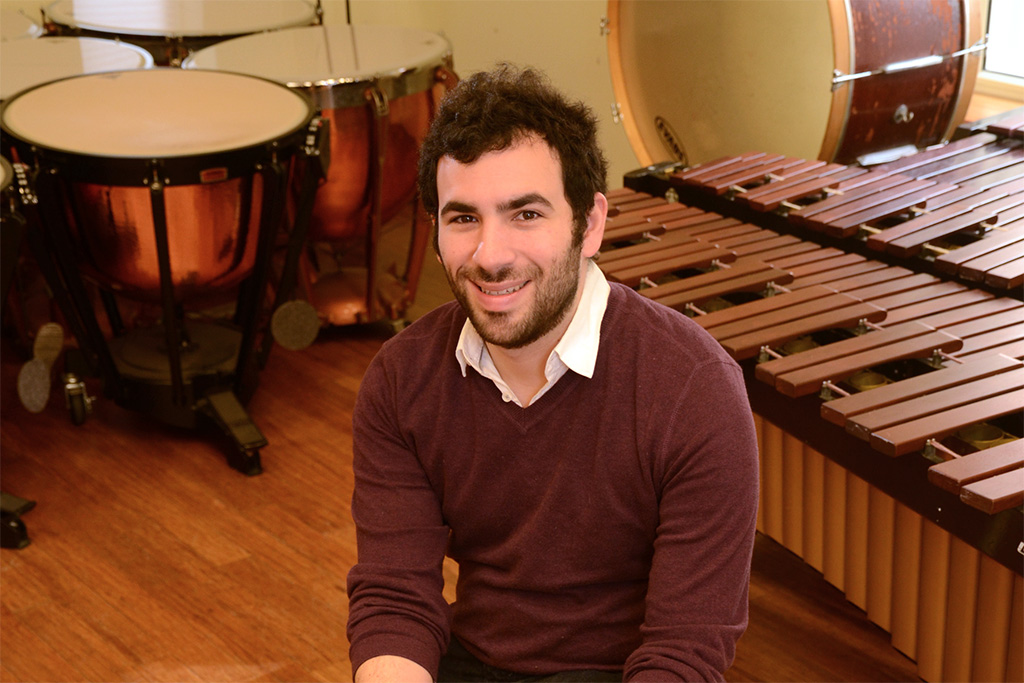
By Laura Lacy
Each time he identified the piece of classical music drifting through the car’s speakers, teenager Will Robin earned a dollar. Robin’s uncle created this exercise for the pair’s weekly drive to rehearsals for the wind ensemble in which they both performed.
While Robin, now a third-year Ph.D. student in musicology at the University of North Carolina at Chapel Hill, did not initially earn much money during these drives, he did gain a valuable appreciation for classical music. “That was my initial introduction to the larger classical music canon,” Robin recalls.
Two summers spent at Boston University Tanglewood Institute, a program associated with the Boston Symphony Orchestra, further honed that interest. “Everyone there knew more about classical music than I did, so I was in a rush to catch up.” His interest piqued, he continued his study of classical music at home. Later, while an undergraduate at Northwestern University, Robin realized that while he did not want to play an instrument professionally, he did want to make a career out of his love of music, which led him to an interest in musicology.
After graduating and spending a year in Berlin researching postwar German avantgarde music, Robin entered the Department of Music at Carolina to earn both a master’s and a doctoral degree. The Graduate School helped recruit him by offering him a fellowship in the Royster Society of Fellows.
Robin’s master’s thesis traced the course of two hymns by Austrian/French composer Ignaz Pleyel to see how they traveled from Europe to post-revolutionary America. He turned this work into a forthcoming article for The Journal of Musicology. In this article, Robin examines the influence of Reverend Joseph Stevens Buckminster and linguist John Pickering, both intellectuals and socioeconomic elites of the early 1800s. The two men were involved in hymnody reform as a way of establishing a new culture for a new nation. Traditionally, an interest in music during this time was seen as a pursuit of the middle class rather than the elites, Robin explains.
“I was able to discover that these people were fascinated with music. They placed it within the broader project for American cultural uplift emerging right around the end of the 18th century. America suddenly found itself as an independent nation striving to compete culturally with European powers. This research allowed me to place music into that cultural project, where it hadn’t necessarily been before,” he continues.
For Robin’s dissertation, he will study American contemporary classical music by conducting three case studies. The first will be about the early years of the Bang on a Can collective in New York City, which was founded in 1987 and continues to shape the music scene today. The second will involve a small independent music label in Iceland called Bedroom Community. Robin hopes to travel to Iceland to study the process of recording an album. Finally, he will research the yMusic ensemble, which commissions pieces by composers in addition to backing up various indie-rock bands.
Carolina has been the ideal place for Robin to conceptualize and conduct his research. In addition to a welcoming and supportive cadre of graduate students and generous funding that enables him to focus on his research, he has found wonderful mentors in the faculty.
“When I came to visit Chapel Hill, I got the sense that the faculty was truly engaged with their graduate students. And that impression hasn’t changed at all since I’ve been here.”
Will Robin was recently named the first-ever Scholar-in-Residence for the North Carolina Symphony. Read more about his Symphony honor.
